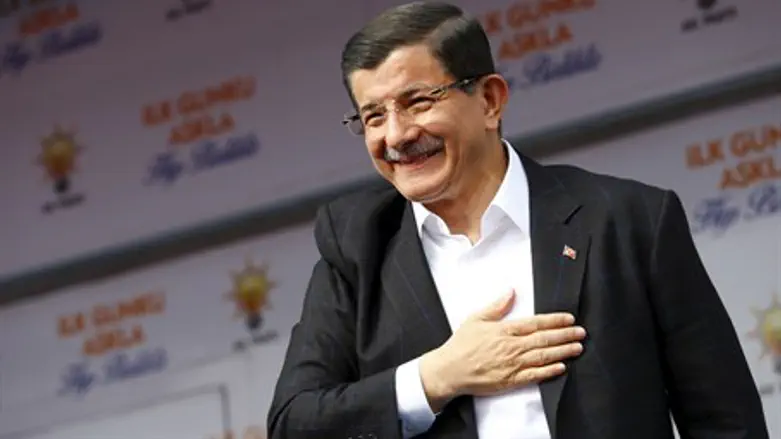
Turkey will continue to strike back at Kurdish fighters of the Democratic Union Party (PYD) in Syria, Prime Minister Ahmet Davutoglu made clear to German Chancellor Angela Merkel on Sunday, AFP reports.
Davutoglu’s remarks come despite growing pressure on Ankara to stop the shelling.
In telephone talks, Davutoglu told Merkel that Turkey "will not permit the PYD to carry out aggressive acts. Our security forces gave the necessary response and will continue to do so," his office said in a statement.
Turkish artillery struck at targets of the PYD and its People's Protection Units (YPG) militia on both days of the weekend, while insisting that it was returning fire under the rules of engagement.
Davutoglu alleged to Merkel that the Syrian Kurdish forces, who Turkey accuses of being the Syrian branch of the outlawed Kurdistan Workers' Party (PKK), had been advancing with Russian air support.
Russia is the key ally of the regime of Syrian President Bashar Al-Assad, who Turkey wants to see ousted.
He said the move by the Kurdish fighters was aimed at uprooting "hundreds of thousands of Syrian civilians" from the border region and "creating a new humanitarian crisis" that would affect both Turkey and the European Union.
"This is aimed not just at Turkey but also the European Union," he said, warning of a "new wave of hundreds of thousands of refugees".
The EU and Turkey, which hosts over 2.5 million Syrian refugees, are already grappling with the crisis that saw around one million migrants cross the Aegean Sea from Turkey to the EU in 2015.
France had earlier called for an "immediate halt" to Turkey's artillery bombardments while the State Department in Washington had also urged Turkey to cease firing.
Meanwhile on Sunday, hopes for a ceasefire in Syria dimmed amid Turkey’s shelling of Kurdish militants and Washington’s demands that Moscow end its air strikes on rebels.
Critics have said Friday's deal is hobbled by the fact it does not include terrorist groups such as the Islamic State (ISIS) group and the Al-Qaeda affiliate Nusra Front, leaving room for Russia to continue attacks by claiming it is targeting jihadists.
U.S. Senator John McCain (R-AZ) also slammed the deal on Sunday, saying it would only empower Moscow's "military aggression."
"Let's be clear about what this agreement does: It permits the assault on Aleppo to continue for another week. It requires opposition groups to stop fighting but it allows Russia to continue bombing terrorists which it insists is everyone, including civilians," said McCain, head of the Senate Armed Forces Committee.
"If Russia or the Assad regime violates this agreement, what are the consequences? I don't see any," he told the conference.
McCain said it was "no accident" that Russian President Vladimir Putin had chosen this moment for a deal.
"We've seen this movie before in Ukraine," he said. "Russia presses its advantage militarily, creates new facts on the ground, uses the denial and delivery of humanitarian aid as a bargaining chip, negotiates an agreement to lock in the spoils of war and then chooses when to resume fighting."
AFP contributed to this report.
